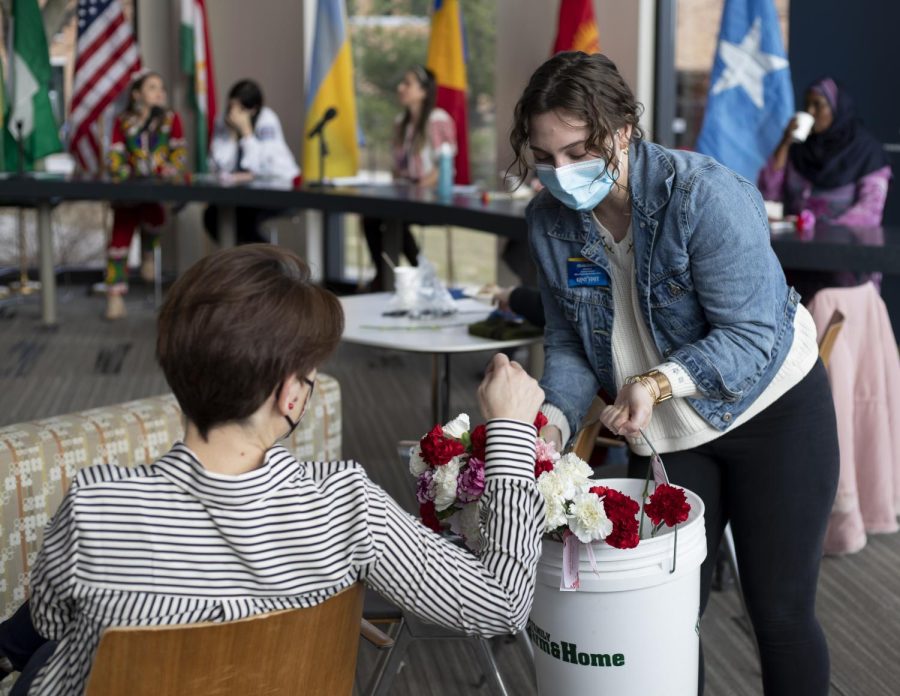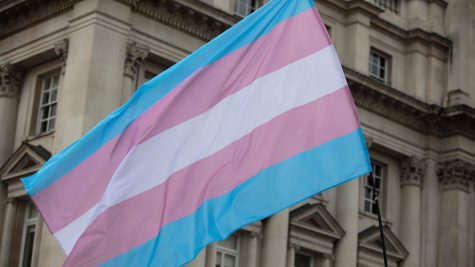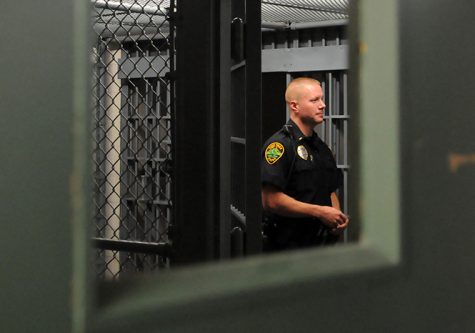Women share international disparities on International Women’s Day
Graduate assistant, Olivia Grahman, hands out carnation flowers to women attending the International Women’s Day event inside the Center for Undergraduate Excellence on Mar. 8, 2022.
March 9, 2022
Five women on the International Women’s Day panel compared gender inequality, women’s rights and educational access in the country they represented Tuesday.
When asked if there is sex education in schools in their country, they unanimously answered “no.”
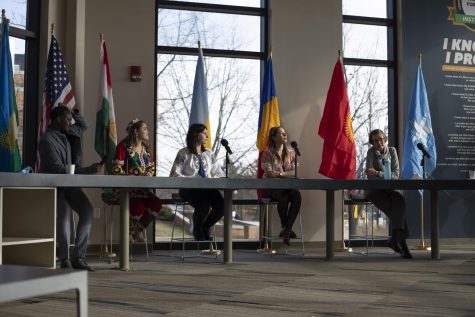
The five women and the countries they represented are
- Laylo Rahimova, a Fulbright Scholar- Tjikistan
- Liudmyla Sokolova, a Fulbright Scholar- Ukraine
- Adina Ionescu, a Fulbright Scholar- Romania
- Martha Merril, a professor in the College of Education, Health and Human Services- Kyrgyzstan.
- Nasra Abubakar, a recent Kent State Ph.D. graduate that studied female genital mutilation for her doctoral thesis- Somalia
Rahimova, Sokolova and Ionescu are Fulbright Scholars. Fulbright Scholars are researchers or teachers from countries in eastern Europe and central Asia that spend six weeks in America, Ionescu said.
The theme for International Women’s Day this year was #BreaktheBias.
“Breaking the bias means to … have equal rights despite gender, religious beliefs, political beliefs and to accept all of the cultures we have,” Sokolova said.
For Abubakar, breaking the bias means to educate and help build awareness in every facet of life.
For Merrill, breaking the bias means acknowledging the difference between personal problems and societal issues.
“People often think that they have their own individual troubles but if you look at it in the societal situation, they’re really issues,” Merrill said.
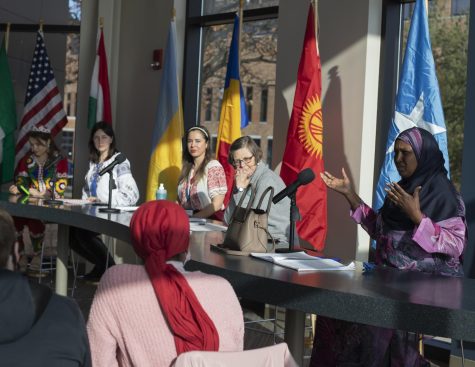
Later in the panel, Pacifique Niyonzima, a graduate assistant as the Women’s Center, asked what their country could learn from America or what is something America could learn from their country.
Sokolova talked about a Ukrainian saying that translates to “if he hates, it means he loves you.” She said this saying has left many women not knowing where they can go to apply for jobs, get out of relationships or get out of abusive relationships.
Before the panel, there was a gallery walk of presentations from other countries. The prompt the presenters were given was to showcase the challenges that women face in their respective countries.
“Outsiders may look in and think that Thai women have the same rights as males,” said Sitang Jittapirom, the presenter for Thailand. “Actually, there are lots of things that we still experience today, even though we have equal rights to vote.”
There tends to be a lot of victim blaming in Thailand, Jittapirom said.
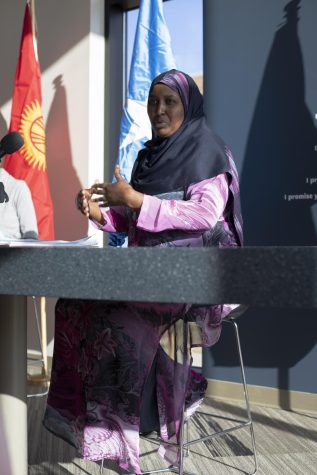
She talked about an incident in 2014 where a female tourist wore a bikini to a beach with a male friend, the tourists were killed while at the beach.
Jittapirom said the Prime Minister Prayuth Chan-ocha blamed the victims when talking to officials.
“There are always problems with tourist safety. They think our country is beautiful and is safe so they can do whatever they want, they can wear bikinis and walk everywhere,” Chan-ocha said. “Can they be safe in bikinis?”
Jittapirom felt that this encouraged victim blaming culture because of how the prime minister addressed the situation.
She also presented on how Thai women, who advocate for equal rights, have been assaulted by male counterparts who were advocating with them.
“How are we supposed to protest together for democracy if the right over my body is still not mine?” she said.
Katherine Masko is a reporter. Contact her at [email protected].


